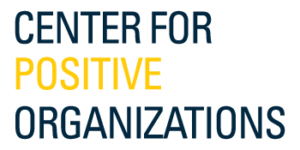This case outlines the origins of Open Book Finance, its core elements, and its implementation at Zingerman’s Community of Businesses in Ann Arbor, Michigan.Open Book Finance is a philosophy of management developed by Jack Stack, CEO of Springfield Remanufacturing Corporation in Springfield, Missouri. Open Book Finance is based on the premise that business is essentially a game—one that almost anyone can learn to play. As with most games, people must understand the rules; they must receive enough information to follow the action and keep score; and they must have the opportunity to win or lose (have a stake in the outcome). Stack’s philosophy was described in his book, The Great Game of Business. This philosophy spawned a movement of like-minded companies (many of whom have regularly attended a “Gathering of Games” conference in St. Louis, Missouri, each spring since 1993) who are dedicated to implementing an Open Book Finance model in their organizations.
Open Book Finance
by: Ryan Smerek, Wayne Baker
Publication Date: July 1, 2010
Length: 22 pages
Product ID#: 1-429-091
Core Disciplines: Accounting/Finance, Leadership/Organizational Behavior, Strategy & Management
Available Documents
Click on any button below to view the available document.
Don't see the document you need?
Don't See the Document You Need?
Make sure you are registered and/or logged in to our site to view product documents. Once registered & approved, faculty, staff, & course aggregators will have access to full inspection copies and teaching notes for any of our materials.
Make sure you are registered and/or logged in to our site to view product documents. Once registered & approved, faculty, staff, & course aggregators will have access to full inspection copies and teaching notes for any of our materials.
$3.95
Need to make copies?
If you need to make copies, you MUST purchase the corresponding number of permissions, and you must own a single copy of the product.
Electronic Downloads are available immediately after purchase. "Quantity" reflects the number of copies you intend to use. Unauthorized distribution of these files is prohibited pursuant to term of use of this website.
Teaching Note
This product does not have a teaching note.
Description
Teaching Objectives
After reading and discussing the material, students should:
- Understand the basic elements of Open Book Finance and how it originated.
- Analyze the challenges that arise when implementing Open Book Finance in a real business.
- Analyze the benefits versus the costs of implementing an Open Book Finance model.
- Discuss whether or not Open Book Finance is right for every organization.

